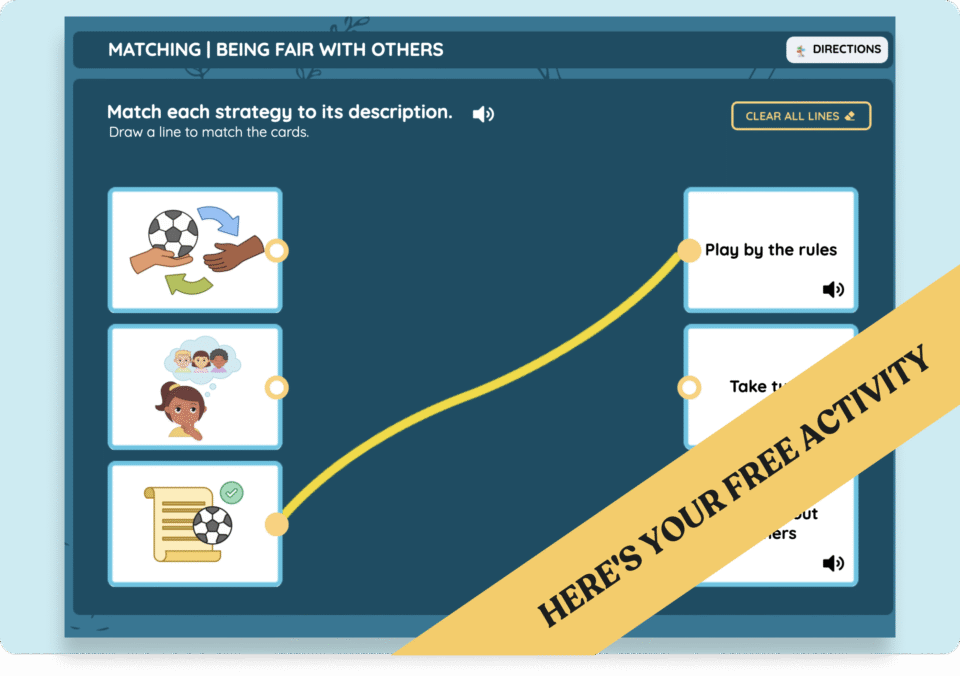Teaching Students to Be Social Chameleons: A Guide for Educators
Get free social skills materials
No-prep lessons on self-regulation, emotional recognition, conversation skills, and more.
Sign up hereIntroduction
Being a Social Chameleon means blending in and adapting to any situation, no matter what is happening around you. It involves tuning into your surroundings, reading people’s moods, and adjusting your actions to fit in with the time and place. This skill is essential for effective communication and building strong relationships. In this blog post, we will discuss a no-prep activity to teach students how to become Social Chameleons, provide discussion questions to stimulate deeper understanding, and mention related skills that can further support students’ social-emotional development.
No-Prep Activity: Social Chameleon Role-Play
This activity requires no preparation or materials from the educator. Divide students into small groups of 3-4. Assign each group a scenario where they will need to adapt their behavior to fit the situation. Examples of scenarios might include a birthday party, a library, a sports event, or a formal dinner. Students will take turns acting out their roles in the scenario, demonstrating how they would adjust their actions and communication to fit the setting.
After each role-play, ask the group to reflect on how well they adapted to the situation and what they could do differently next time. Encourage students to share feedback with their peers, praising positive behaviors and offering constructive suggestions for improvement. This activity helps students practice being Social Chameleons and builds their confidence in adapting to various social situations.
Discussion Questions
- Why is it important to be a Social Chameleon and adapt our behavior to different situations?
- Can you think of a time when you successfully adapted your behavior to fit a situation? What did you do, and how did it help you?
- What challenges might someone face if they struggle to adapt their behavior in different social settings? How can we support them?
- How can being a Social Chameleon help you build stronger relationships with others?
- What are some strategies you can use to become more aware of your surroundings and the moods of others?
Related Skills
In addition to becoming Social Chameleons, students can benefit from developing related social-emotional skills. Some of these skills include:
- Active Listening: Paying close attention to what others are saying, making eye contact, and using verbal and non-verbal cues to show understanding.
- Empathy: Putting yourself in someone else’s shoes and understanding their feelings and perspectives.
- Assertiveness: Expressing your thoughts and feelings in a respectful and confident manner.
- Conflict Resolution: Identifying and addressing disagreements or misunderstandings in a constructive way.
Next Steps
To further support your students in developing their Social Chameleon skills and other essential social-emotional competencies, consider signing up for free samples of skill-building materials at Everyday Speech. These resources can provide valuable guidance and inspiration as you continue to foster your students’ social-emotional growth.

